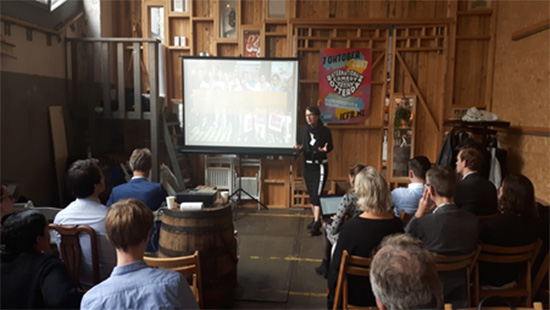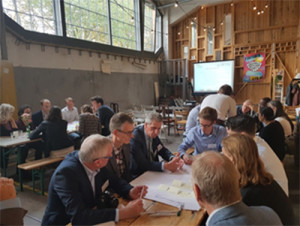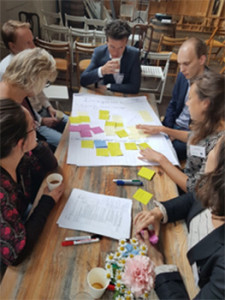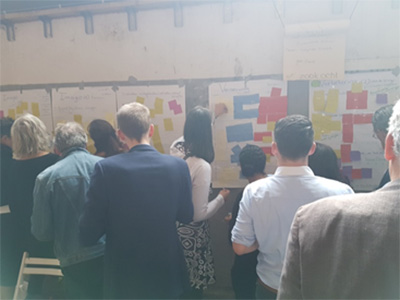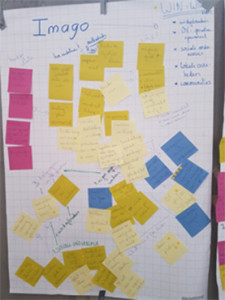The social entrepreneurship workshop in Rotterdam, within the CIPTEC project, entitled: “How to involve social entrepreneurs in the Public Transport” was held on 12th of October 2017. The workshop was organized by the Metropolitan region Rotterdam The Hague (MRDH) and took place at Fenix Food Factory in Rotterdam.
The Fenix Food Factory was an inspiring location, because it is an old porthouse runned by entrepreneurs. The entrepreneurs offer a culinary hotspot, a place to go for good food and to learn about how products are made.
A warm welcome of the participants was offered both by Mr. O. Cazemier (Mobycon), the day chairman and Mrs. H. El Aissati (MRDH), who gave a short presentation about CIPTEC project and the reason why we organized the workshop. About 25 participants from different backgrounds attended the workshop. The group consisted of social entrepreneurs, representatives from the authorities, the public transport operators and other stakeholders. The aim of the workshop within the CIPTEC project was how to involve social entrepreneurs in the Public Transport sector.
In the beginning, participants broke the ice by introducing themselves. After the introduction the invited social entrepreneurs (Talentfabriek010, Biesieklette and Social Impact Factory) got the opportunity to present their organizations.
After the presentation the participants got to work using the world café method. This is a creative process for facilitating collaborative dialogue and sharing of knowledge and ideas to create an evolving network of the conversation and actions mentioned.
In the first round of the workshop, the participants worked in groups with these themes: PT Innovation, PT Improvement and image of public transport.
There were 3 groups and they got the opportunity to discuss the following questions:
- How can social entrepreneurship provide more (social) innovation in public transport?
- How can the involvement of social entrepreneurs improve the public transport for the passengers?
- How can social entrepreneurship provide a better image of the public transport sector?
After each round’s end, participants moved and groups switched to a new table to discuss the previous ideas of the group.
It was concluded that social entrepreneurship practices in the PT sector are most likely to succeed if ‘local’ needs and challenges of the public transport operators are brought together.
After a short break the participants started with the second round. Within this round the opportunities and advantages to involve social entrepreneurs in the public transport sector were discussed. The answers on the following questions were shared with each other:
- What are the opportunities of social entrepreneurship to provide more (social) innovation in public transport?
- What are the opportunities to involve social entrepreneurs to improve public transport for the passengers?
- What are the opportunities of social entrepreneurship to provide a better image of the public transport sector?
The group concluded that someone should start with what the sector or company can do for society, combining that with business issues.
In the last round of the workshop the participants were asked to discuss the following questions:
- What are the barriers of social entrepreneurship and (social) innovation in public transport?
- What are the barriers of involving social entrepreneurs to improve public transport for the passengers?
- What are the barriers preventing social entrepreneurship to provide a better image of the public transport sector?
The participants discussed the solutions to remove the barriers. The conclusion was that the PT sector needs a strategy and policy to cooperate with social entrepreneurs.
After the third round, the results were shared in a plenary wrap up. The participants finished the work by ranking the results by using the evaluation method of ‘dot voting’.
At the end of the workshop participants were asked to fill-in a workshop assessment questionnaire about the organization of the workshop, the provided venue’s facilities, the facilitation team, etc.
All the participants had a positive view about the workshop as a whole and the specific topics that were discussed.

